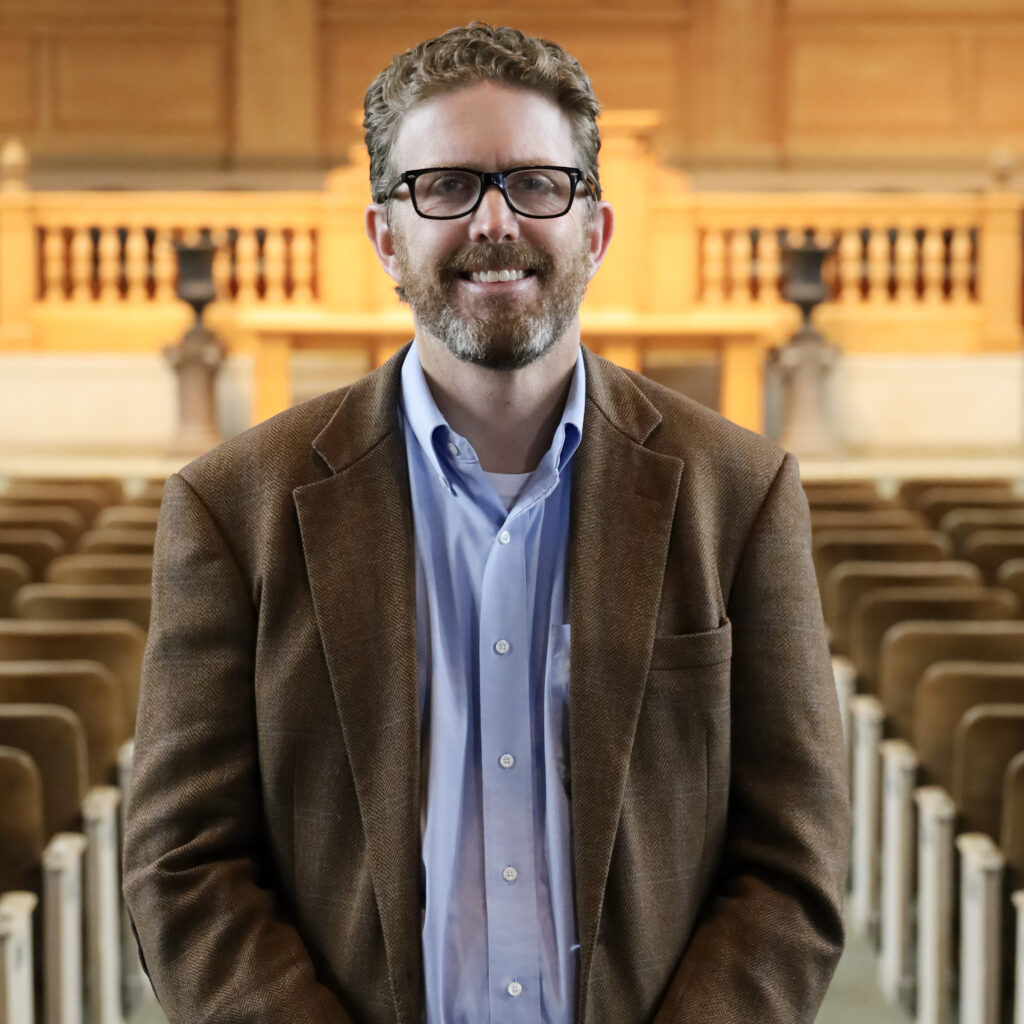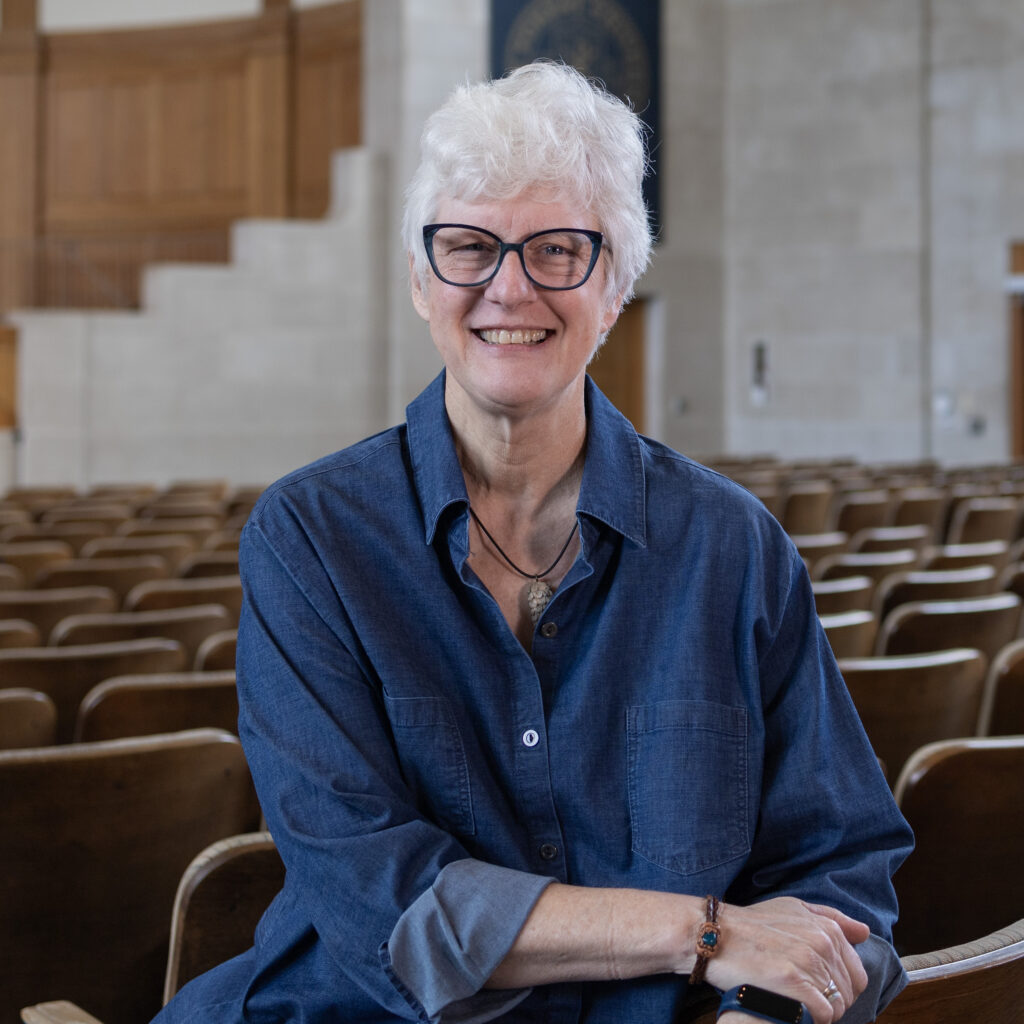Doctor of Ministry
Bring Your Experience. Expand your Understanding.
The Doctor of Ministry at Wake Forest University School of Divinity brings together a cohort of senior faith-informed leaders to uncover new possibilities for responding to the complex realities of our times.
A cohort formed of a diverse range of industry and vocational paths along with supportive faculty scholar-practitioners offer an ecosystem of learning that equips leaders to inspire transformation in their unique contexts.
The DMin is a three-year, online degree with in person residency requirements. Residency dates provide students and faculty the opportunity to connect face-to-face on the campus of Wake Forest University to work together on interactive projects.
A Doctor of Ministry for Faith-Informed Leaders:
- Church Leaders
- Social Justice Advocates
- Social Activists
- Health Professionals
- Non-profit Managers
- Counselors
- And YOU
Ready to get Started?

Dr. John Senior
Assistant Dean of Vocational Formation and Doctoral Education
336.758.5523
dmindir@wfu.edu
Bio

Dr. Jill Crainshaw
Vice Dean for Faculty Development and Academic Initiatives and Professor of Worship and Liturgical Theology
336.758.3221
crainsjy@wfu.edu
Bio
Admissions and Program Information
- Master of Divinity from an institution accredited by the Association of Theological Schools or equivalent accrediting body (Applicants without a Master of Divinity degree, but who have graduate education in another discipline, may be eligible to apply as well. See the Divinity School’s Academic Bulletin’s Admissions Policies for Applicants without a Master of Divinity Degree).
- 3.0 GPA in highest earned graduate-level degree
- At least three years in a full-time faith-based professional position or an equivalent in part-time experiences
- Completed Application
- Complete Doctor of Ministry Application (including paying the $75 application fee)
- A statement of purpose in which applicants identify an area of ministry practice that they would like to explore in light of their vocational journey
- A 7-10 page sample of academic writing, with alternatives (i.e., other types of writing that evince analytical and reflective abilities and writing skills) for applicants who have not engaged in recent academic coursework.
- Three letters of recommendation. Ordinarily, two recommendations will be provided by instructors from previous academic experiences. The third will be a professional recommendation. Students who have not engaged in recent academic coursework may substitute a professional recommendation for an academic recommendation.
Foundational (required) courses (15 credit hours total):
- MIN 740: Theological Reflection as Praxis (3h)
- MIN 750: Analyzing Communities and Contexts (3h)
- MIN 760: Transformational Religious Leadership (3h)
- MIN 770: DMin Project Seminar/Proposal (3h)
- MIN 780: DMin Project Seminar/Presentation (3h)
Potential Elective courses (15 credit hours total):
- Faith and Health Equity: Integrated Paradigms (SPS)
- Social and Ecological Determinants of Health (SPS)
- Spirituality, Medicine, and Collaborative Community Leadership (SPS)
- Watershed Discipleship: Bioregional Faith and Practice
- Public Leadership in Nonprofit Organizations
- Culinary Culture in Black Experience
- Eco theologies
- Trauma and Resilience
- Theological Leadership for Ecologically Sustainable Congregations
- Neuroethics
- Religion, Health, and Ecology in Contexts: (sample topics include HIV/Aids, public health and LGBTQ+ communities, health and social justice, etc.)
Summative Project:
Students are required to design, propose, complete, and present findings of a summative final place-connected project. The project should build upon the issues and questions raised throughout the three years of coursework.
Enrollment:
Doctor of Ministry students enrolled in 6 credit hours per semester are considered full-time. Doctor of Ministry students enrolled in 3 credit hours per semester are considered part-time.
- *August – Year 1
- 3 days
- Introductory in-person cohort retreat (no course component)
- January – Year 1
- 5 days
- In-person intensive course meeting: “Theological Reflection as Praxis”
- January – Year 2
- 5 days
- Focus on the DMin project proposal design
- August – Year 3
- 5 days
- Workshop DMin project drafts
- April – Year 3
- 5 days
- Project presentations in annual symposium
Note:
* The August cohort retreat is for first-year Doctor of Ministry students only. Doctor of Ministry cohorts will meet only in January and June in years two and three.
Important Dates for Doctor of Ministry (DMin) Admissions:

Priority Decision:
December 1
Application Fee: $75
Decision: released by December 30
Enrollment Term: Fall 2025

Regular Decision:
May 15
Application Fee: $75
Decision: rolling basis
Enrollment Term: Fall 2025

